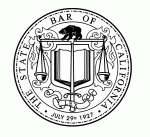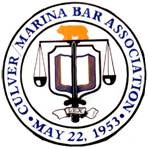One of the more interesting legal issues that arose in connection with the efforts to impeach President Clinton had to do with Linda Tripp’s secret recording of her telephone conversations with Monica Lewinsky. If Ms. Tripp had engaged in such conduct in California, she would have been subject to criminal and civil liability for doing so.
In California, anyone who secretly records a telephone conversation or an in-person meeting may be violating Penal Code section 632, part of California’s Privacy Act, which provides that intentional eavesdropping or recording of any confidential communication by means of any electronic amplifying or recording device without the consent of all parties to the communication is guilty of a crime. The penalty for violation of section 632 is a fine not to exceed $2,500, imprisonment in the county jail or state prison for not to exceed one year, or both. A person who is convicted for a second or subsequent violation of section 632 is subject to a $10,000 fine, imprisonment for not to exceed a year, or both.
Many businesses and individuals are unaware of this law and record telephone calls or conversations for a variety of reasons, including quality control, keeping track of employee conduct, or preserving evidence of a telephone call or meeting when they want a record of verbal agreements reached or suspect that a participant may be misrepresenting facts and want to be able to prove such misrepresentations. However, if a communication is confidential, all parties must be advised of the recording or eavesdropping and must consent to being recorded.
At one time, it was legal to record a conversation if only one party consented. That is no longer the law. Penal Code section 632(a) provides that all parties must consent and if all of the parties are not aware of the recording and fail to consent, there is a substantial risk that the recording party could be held legally responsible for violating section 632.
To show a violation of section 632, a party needs to show nothing more than the existence of a reasonable expectation by a party to a conversation that no one was listening in on the conversation and that the conversation was intentionally recorded or eavesdropped upon by someone through the use of an electronic amplifying or recording device.
Violation of section 632 does not require a showing that a tape of a confidential conversation was ever disclosed to a third person. Its penalties arise even if the person recording the conversation never discloses the taped conversation to anyone else or even uses the taped conversation at all.
Section 632 has effects on civil litigation as well because it provides that no evidence obtained as a result of eavesdropping upon or recording of a confidential communication in violation of that section is admissible in any judicial, administrative, legislative or other proceeding.
Thus, in California, Linda Tripp’s secret telephone recordings could not have been used as evidence in any legal proceeding. There is an exception to this rule – that such a recording can be used to impeach a witness who was recorded, that is, to show that a witness is attempting to commit perjury.
Additionally, Penal Code section 637.2 provides that any person who has been injured by a violation of the Privacy Act may bring a civil action against each person who committed the violation and may recover damages for each violation in an amount equal to the greater of $5,000 or three times the amount of the actual damages sustained by the injured person.
There is no requirement for such an action that the plaintiff suffer or be threatened with any actual damages. In civil cases where there have been multiple recordings of confidential conversations, courts may award $5,000 in damages for each wrongfully recorded conversation, so this civil penalty can result in substantial damage awards.
Ignorance of this law is no defense. All that is required is an intent to eavesdrop upon or to record a confidential communication, and doing so. Thus, if you or anyone you know records telephone or other confidential conversations, the recording party should be sure to obtain the consent of each participant to such a conversation on the recording. Failure to do so could result in substantial civil and criminal penalties.




